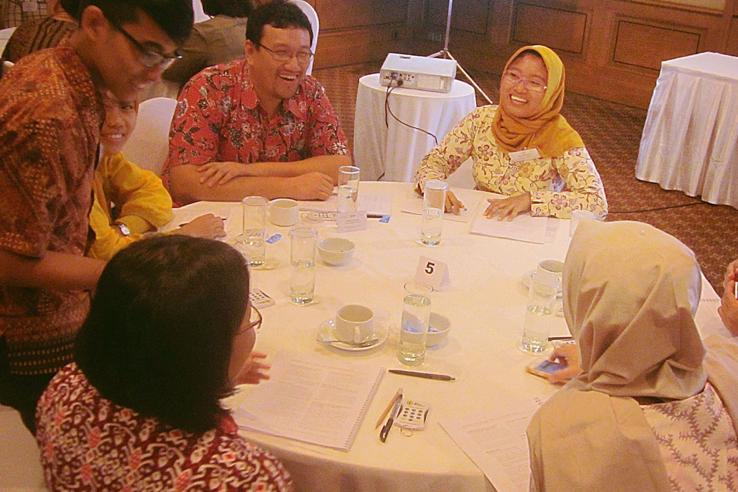Impact Evaluations Training: Finding Strategies for Poverty Alleviation

Although the idea of impact evaluation is intuitively simple to grasp, in practice there are many pitfalls that can bias results, or otherwise hinder our ability to answer important questions: at best, these can make the impact evaluation uninformative, and at worst, they can be misleading. J-PAL is committed to build capacity for and support others to become avid users and producers of evidence.
Through a two-day training program delivered in Indonesian by J-PAL Southeast Asia, attendees will be introduced to the use of randomized evaluations in evaluating the impact of important social programs. The course balances the knowledge regarding field experiments with highly interactive case studies and group work which aims to equip trainees in becoming better producers and users of evidence. In particular, attendees will be introduced to the following topics:
- What is evaluation?
- How do we measure impact?
- Introduction to randomized evaluations
- Threats and challenges in conducting field experiments
This course is open for researchers. Through a mixture of lectures and interactive group work, we hope participants will easily grasp the technical content. The round table discussions during the training will be facilitated by training assistants with first-hand experience in randomized evaluations.
To register for the Impact Evaluation Training, please fill out this form: http://bit.do/IRSA2017
Our training staff will inform you of your registration status and if seats are still available for the training. Please note that this training will be held in Indonesian and that there is a registration fee to participate in this training.
Any questions regarding the Impact Evaluation Training can be sent to: Aulia ([email protected])